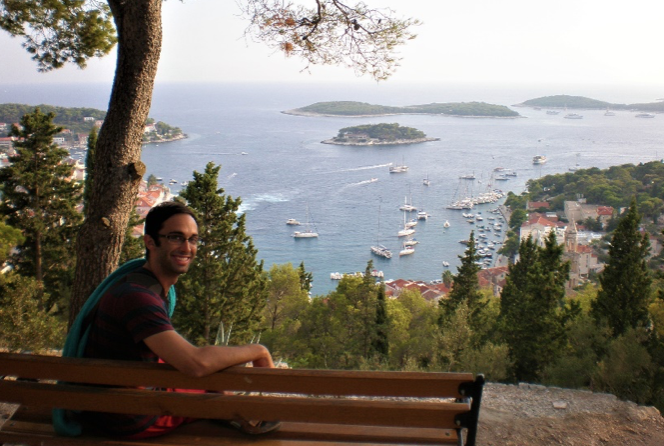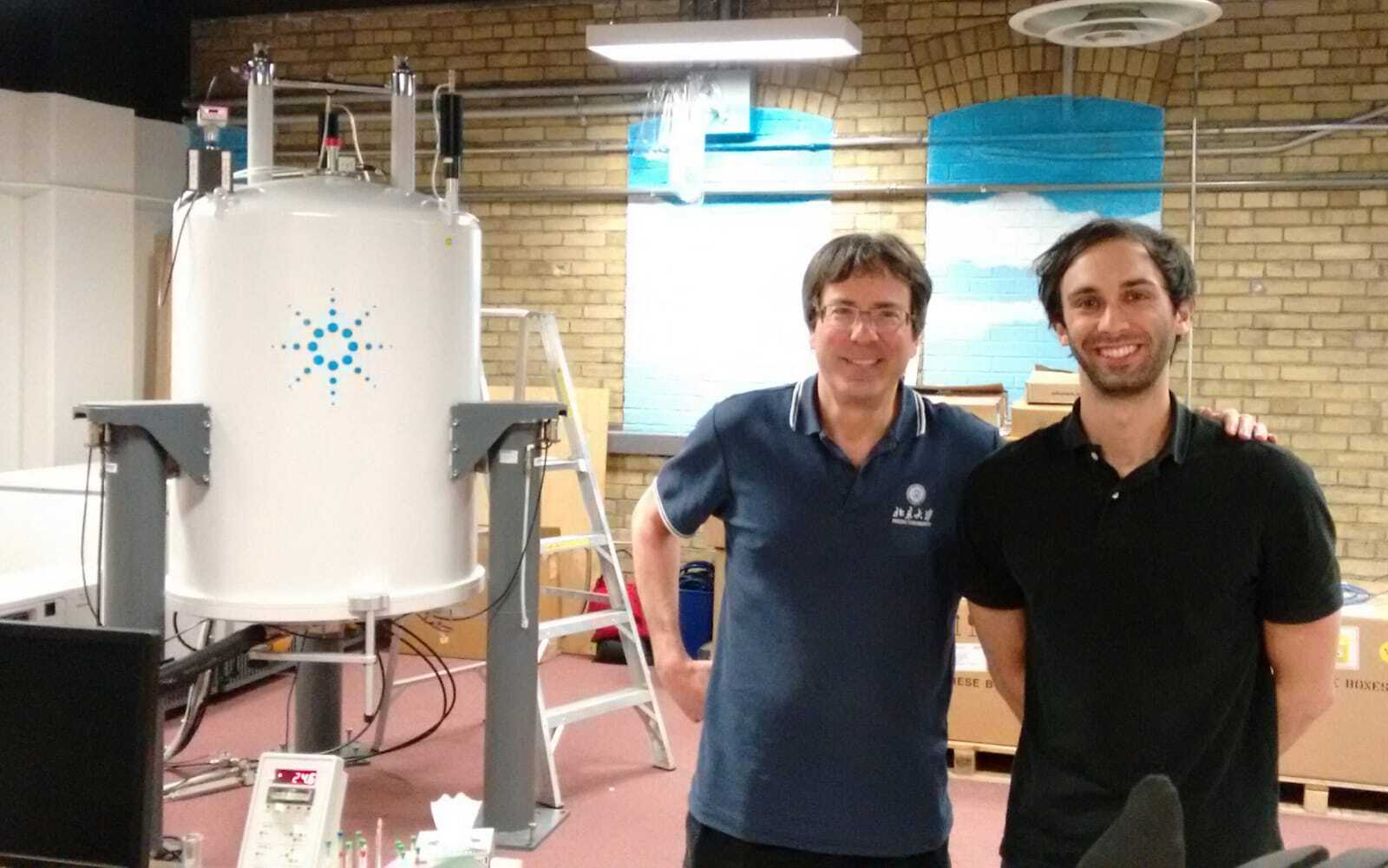Alumnus Reid Alderson has been busy since he graduated from the NIH Oxford-Cambridge Scholars Program this past fall. Reid moved to Zagreb, Croatia, to partake in a beginner’s Croatian language course during the 2018-2019 fall semester at the University of Zagreb. He was granted a scholarship to participate in this course from the Republic of Croatia’s Central State Office for Croats Abroad. This was a unique opportunity for Reid, who was eligible for this scholarship because of his Croatian wife, Iva, who is also a postdoctoral researcher and graduate of Oxford and Zagreb. The scholarship allowed Reid to live and study in Zagreb while also getting the opportunity to spend time with Iva’s family and friends. “It was wonderful to have a few months where I could decouple from thinking about science every day, and instead focus my time on other aspects of personal development. It was refreshing and a fun challenge. Now I am an A2/B1-level speaker of Croatian,” stated Reid. He now has a foundation in the language and will continue learning on his own — of course with Iva’s help!

During this time, Reid was also putting final touches on his Nature Communications paper, which was published on March 6, 2019. This paper, Local unfolding of the HSP27 monomer regulates chaperone activity, employed nuclear magnetic resonance (NMR) spectroscopy to characterize the three-dimensional structure of the molecular chaperone HSP27, which is an abundant protein in humans that is highly expressed in many forms of cancer. He found that the function of HSP27 is regulated by a disulfide bond and determined the structural basis for this regulation. A related study on the phosphorylation of HSP27 was recently accepted for publication in Science Advances with Reid as second-author (Phosphorylation of Hsp27 regulates its intramolecular dynamics and mechanosensitive molecular chaperone interaction with filamin C). Both journals are entirely open-access, which means the articles are freely available to everyone, and both articles were initially deposited in the bioRxiv (“bio-archive”), a recently established repository where articles can be freely shared with the scientific community, both before and after peer-review. The bioRxiv has drastically altered the publishing landscape in the life sciences, causing split opinions on the topic. “I strongly support the bioRxiv because it allows everyone the same level of access, accelerates both the generation and distribution of scientific knowledge, and provides an opportunity for real-time feedback from colleagues and the community at large,” said Reid.His most recent bioRxiv preprint is an NMR project that was led by Iva. In total, Reid has now contributed to 15 publications, from which he was the first-author of eight.
If you thought these achievements have been incredible, Reid continues to impress and surpass all expectations. In January 2019, Reid moved to Toronto to become a postdoctoral researcher with Lewis Kay, and Reid has just been awarded the prestigious Banting Fellowship, which is named in honor of the 1923 Nobel laureate Frederick H. Banting, a professor at the University of Toronto who co-discovered insulin. The Banting Fellowship was awarded to 23 postdocs across Canada who were selected from a pool of 204 applicants that had been nominated by their host universities. Reid’s research proposal, which was ranked #11 overall, focuses on understanding the molecular basis of apoptosis, a means of programmed cell death, and its dysregulation in diseases such as cancer. He will receive funding for the next two years. “I am grateful to the training and guidance that I received during my PhD from my mentors at the NIH and Oxford, and also earlier during my undergraduate training at UW-Madison. Thanks to the initiative and support of the NIH-OxCam program, I was able to develop research skills in world-leading institutions.” Reid also notes the serendipity of his current position, “My postdoctoral supervisor Lewis completed his own postdoctoral training with my NIH PhD supervisor Ad Bax and later trained my Oxford PhD supervisor Andy Baldwin. So, in a way, everything has come full circle now!”
We continue to be amazed by the work of the NIH Oxford-Cambridge Scholars and look forward to the future of Dr. Alderson’s career.

